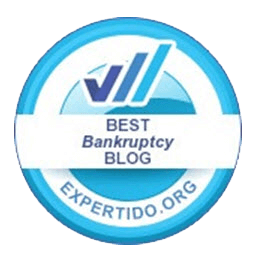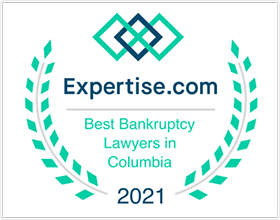Whether you are thinking of filing for a Chapter 7 or Chapter 13 bankruptcy to manage your financial health, your primary goal is to have as much of your debt discharged or wiped out so you can take back control of your finances. Once your debts have been wiped out, you will no longer be legally responsible for paying them. But bankruptcy laws specify which debts you can discharge and which ones you can’t. This means that while bankruptcy can wipe away your debts, it cannot discharge or wipe away all your debts.
What Debts Can I Wipe Out With Bankruptcy?
The court may discharge the following debts:
- Medical bills
- Credit card debt
- Unpaid utility bills
- Personal loans
- Judgments from outstanding unsecured debts
- Any loan balances after a foreclosure or repossession
- Certain government loans
If you are seeking to discharge any secured debt, like an auto loan or mortgage, it can be complicated. If you discharge the entire debt, you will have to give up the collateral. If you opt not to discharge this debt, you might have the option to reaffirm the loan and get another chance to keep up with payments. If you are filing for Chapter 13 bankruptcy, you might be able to address the arrears of an auto loan or mortgage in your repayment plan and keep your collateral if you can stay current on payments. These are all options you should discuss with your attorney.
What Debts Can’t Be Wiped Out With Bankruptcy?
Debts that you cannot discharge with bankruptcy include the following:
- Fraudulent or questionable debts
- Criminal court penalties or fines
- Student loans. You can only discharge your student loans with bankruptcy if you can prove that you will suffer an undue hardship trying to repay them or if you are suffering from a permanent and complete disability.
Keep in mind there are certain debts you cannot discharge in Chapter 7 bankruptcy, but that are dischargeable in Chapter 13 cases. For instance, some family court obligations can be discharged in Chapter 13 bankruptcy, as can qualified tax debts from the past three years.
Our bankruptcy lawyer can assess the nature of your debts and advise which type of case is best for your situation to discharge the maximum amount possible.
What If I Incur More Debt After Filing for Bankruptcy?
Keep in mind that bankruptcy can reset your finances by wiping out existing debts. But it cannot get rid of debts you accumulate after filing for bankruptcy. You will be responsible for paying any debts you incur while you wait for a discharge. Once your bankruptcy case has been approved, only dischargeable debts will be wiped out.
Speak to Our Experienced South Carolina Bankruptcy Lawyer
Regardless of which type of bankruptcy you are considering filing, our South Carolina bankruptcy lawyer can determine the debts you can wipe away and which ones you’ll still be on the hook for after you’ve filed for bankruptcy. To schedule your free consultation with our South Carolina bankruptcy lawyer, please get in touch with the Reed Law Firm online or by phone at 803-726-4888.


